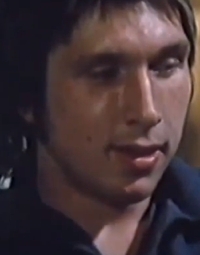On May 5, 2014, Salon published an interview that David Daley conducted with Updike biographer Adam Begley,
“Adam Begley on John Updike: ‘He believed he was doing something more important than the feelings of the people around him.'”
In it, Begley talks about the hazards of writing a biography and shares his thoughts on some of Updike’s friends and harshest critics, among them:
“[Christopher Lasch and Updike], I think, egged each other on, and pushed each other to greater academic feats. It’s weird enough that they were roommates, what’s even weirder is that they then both graduate summa, that Kit Lasch gets the prize for best thesis, and Updike gets the No. 2 prize. I mean, I don’t suppose that’s ever happened before in the history of Harvard, freshman year roommates getting No. 1 and No. 2 essay prizes, and graduate summa. It’s an extraordinary coincidence.”
“Jonathan [Franzen] has very harsh words for Updike. And I remain convinced—and I admire Jonathan’s work and I’m fond of Jonathan personally—but I believe that he’s suffering from a bit of anxiety of influence here. That he feels the need to denigrate Updike because his project is really not very different from Updike.”
“Let’s go back to 1996, ’97. David Foster Wallace is the flavor of the month. He’s just published ‘Infinite Jest.’ John Updike has just published a novel set a couple years in the future, which is somewhat eerily like the future world of ‘Infinite Jest.’ . . . So yes, I got David Foster Wallace [to review the novel], but no, I was not involved in the attempt to assassinate Updike . . . . David Foster Wallace was not a full-blooded critic of Updike. He had in his collection a heavily annotated copy of ‘Rabbit, Run.’ He is an Updike fan. But ‘Toward the End of Time’ is not a good novel.”
 Radio Open Source, which recently uploaded a podcast featuring Adam Begley intercut with John Updike audio quotes, also uploaded “From WHAT MAKES RABBIT RUN?: David Updike on being a writer’s child.” The clip only runs a minute and a half, but Updike enthusiasts might appreciate seeing the difference in philosophy between Updike and his son, who is also a writer.
Radio Open Source, which recently uploaded a podcast featuring Adam Begley intercut with John Updike audio quotes, also uploaded “From WHAT MAKES RABBIT RUN?: David Updike on being a writer’s child.” The clip only runs a minute and a half, but Updike enthusiasts might appreciate seeing the difference in philosophy between Updike and his son, who is also a writer.

